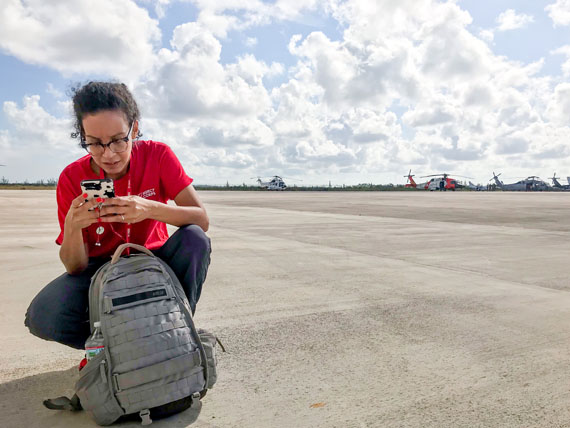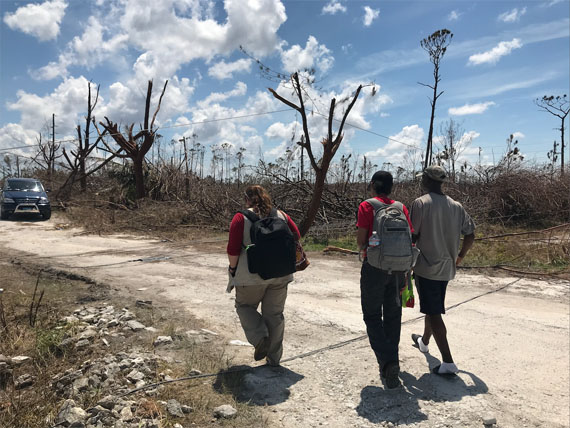| "If you don’t have anyone local in the conversation, you won’t know who hasn’t been reached." |

More than a week after Hurricane Dorian slammed into the northern islands of the Bahamas, people there are only beginning to pick up the pieces of their lives, and the needs are still tremendous. Clean water. Food. Light and power. Basic shelter. For many, nothing remains of the communities they called home ten days ago.
You can help our teams deliver lifesaving aid to survivors in the Bahamas and to others in need around the world by making your emergency gift to our Humanitarian Response Fund today. You met some of our emergency responders last week, and on Saturday, members of that team were able to helicopter into Marsh Harbor on Great Abaco island. They arrived with boxes of solar lanterns, and distributed those to a healthcare center. Other team members have been coordinating additional distributions, and lanterns have gone to a hospital on Grand Bahama and to Little Abaco.

Emergency response team member Karla Peña as she was leaving for Marsh Harbor. Karla has been coordinating our efforts with local community leaders in the Bahamas.
Given the catastrophic damage that has leveled these communities, it’s critical right now that we work with others in the response efforts to get this right. And we’re already thinking about not just the immediate needs, but also what our response will look like into the weeks and months ahead. Our experience with long-term recovery in places like Nepal, the Philippines and Haiti, gives us an understanding of what recovery may look like in the Bahamas, and how we will be able to help communities build back stronger. When Hurricane Maria hit Puerto Rico two years ago this month, we responded in the days following the storm, and we have stayed to work with community resilience organizations and support small business recovery. Our experience there helps inform our approach in this disaster. This week in the hardest-hit parts of the Bahamas, our team will be back talking with people, families and community leaders, working to determine the places where our resources will offer the most impact. We will be listening for the people that other sources of help may not be reaching, and focusing efforts on helping those who are most in need.
This week also was scheduled to be the first week of school in the Bahamas. Many families affected by the hurricane had just paid school fees and purchased school uniforms, but now their schools are simply gone. Our dedicated response team is working nearly around the clock to gather support, stage resources, make connections and begin distributing supplies. Throughout these efforts, we listen to the stories of the people we help. We’re hearing stories of terrible loss and uncertainty, but also of hope and determination in the face of complete devastation. 
Team members walk with a local resident as they assess needs on Great Abaco island after Hurricane Dorian.
The way people come together in crisis to help one another is at the core of the work we do. Mercy Corps teams are at work around the world, helping make better futures possible in moments of crisis and disaster. You are an essential part of this work. Please make a gift to our Humanitarian Response Fund, to support families in crisis and help them build back stronger than before. Your gift will help us continue and expand our lifesaving work here and in more than 40 countries around the world. On behalf of all of our Mercy Corps teams, thank you for your generosity and compassion as we race to help the Bahamian people survive the aftermath of this disaster. 
Neal Keny-Guyer, Mercy Corps CEO |
| STAY CONNECTED |
|---|
|
||||||